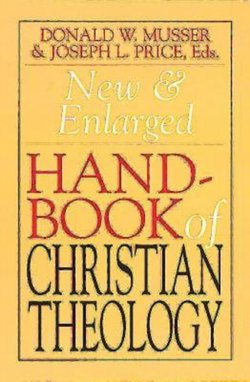Читать книгу New & Enlarged Handbook of Christian Theology - Donald W. Musser - Страница 13
На сайте Литреса книга снята с продажи.
ОглавлениеAGNOSTICISM
Agnosticism is the intellectual disinclination to assert or deny truth claims without compelling evidence. More narrowly defined, it is the disinclination to assert or deny statements regarding the existence and nature of God. The adoption of agnosticism as a general intellectual orientation is motivated by the conviction that there is insufficient evidence for steadfast cognitive commitments. Like philosophical skepticism, agnosticism is less a doctrine than a refusal to be doctrinaire. As regards the existence of God, agnosticism is the position that shuns both the theistic claim that God exists and the atheistic claim that there is no God.
The word “agnosticism” was coined in 1869 by the English biologist Thomas Henry Huxley. A staunch defender of Darwinism, Huxley made agnosticism central to his conception of scientific rationality. In an 1889 essay, “Agnosticism and Christianity,” he wrote: “It is wrong for a man to say he is certain of the objective truth of a proposition unless he can produce evidence which logically justifies that certainty. This is what agnosticism asserts and, in my opinion, is all that is essential to agnosticism.” Clearly Huxley’s conception of agnosticism was of the broader sort, because he identified it closely with a general prescription governing rational beliefs; this maxim is now commonly called “the evidentialist principle” and is associated especially with the empiricist philosophy of John Locke. Huxley inferred from his prescription that belief in God’s existence is not rationally assertible. Another Darwinian, Herbert Spencer, expressly associated agnosticism with the unknowability of basic facts about God.
The Greek root of “agnosticism” may mean either “unknown” or “unknowable.” Similarly, an agnostic may admit to lacking knowledge about God because he or she has, in fact, failed to secure such knowledge or because he or she is convinced that, in principle, this sort of knowledge is not attainable by even the most persistent and proficient human inquirer. Protagoras and David Hume were philosophers who exemplified a sort of ironic humility toward theological matters, while Plato and Immanuel Kant confessed to a principled science about God’s nature and existence. Kant argued that belief in God arises as a postulate of practical reason rather than from a proof of theoretical reason. The wide influence of his view made agnosticism an ironic and polite form of atheism that led some philosophers to accentuate the immanent character of God and prompted some theologians to acknowledge the confessional character of faith.
Broader social forces also have effected the diminished prominence of agnosticism as a category for describing basic beliefs about the world. Secularism, as the social legitimation of nonreligious values and behaviors, makes unqualified atheism less shocking, while at the same time making systematic indifference to religion more feasible. Also, historicism, as the acknowledgment that one’s beliefs are historically conditioned—often in unconscious ways—makes a professed suspension of judgment regarding religious matters less credible. Thus in its specific meaning as disbelief in God based on methodological grounds, agnosticism has lost its original status as a prime alternative to theism or atheism. It may just as easily be understood today as a critical moment within theism or as an undisguised adjunct to atheism.
In the sense that nineteenth-century agnostics not only eschewed belief in God but likewise eschewed theism and atheism as classical doctrines regarding God, they presaged current thinkers who are not convinced of the value or necessity of foundational discussions about God’s existence and nature. Having rejected philosophy’s function of arbitrating between competing truth claims, Richard Rorty practices a more conversational variety of philosophy and feels no obligation or inclination to continue traditional theological disputations. Upon the assumption that beliefs are epistemologically innocent until proved guilty, Alvin Plantinga says that God’s existence is in no greater need of demonstration than the existence of other minds or past historical events. Among theologians, Karl Barth excluded epistemological concerns from the task of theology, and Gustavo Gutiérrez has urged theologians to reorient their attention from nonbelievers to the poor and oppressed. Many philosophers and theologians no longer consider agnosticism itself an important topic of discussion.
PETER VAN NESS
Bibliography
R. A. Armstrong, Agnosticism and Theism in the Nineteenth Century.
David Hume, An Enquiry Concerning Human Understanding.
Thomas H. Huxley, Collected Essays: Volume V: Science and Christian Tradition. Herbert Spencer, First Principles, 1862; 6th ed.
Cross-Reference: Atheism, Theism.
